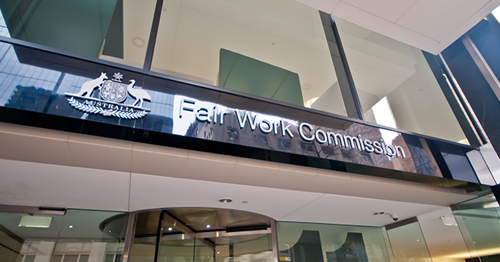Changes to the Fair Work Act come into effect through 2023 and early 2024
3 August 2023
Labour hire providers and hosts should be aware of changes to the Fair Work Act 2009 to ensure they continue to meet their legal obligations.
Some of these changes are already in effect, with further changes being implemented through 2023 and into 2024. More information on the changes is available on the Fair Work Ombudsman (FWO) website.
Changes to unpaid parental leave
From 1 July 2023, partnered couples can claim up to 20 weeks’ paid parental leave between them. Parents who are single at the time of their claim can access the full 20 weeks.
Other changes include:
- allowing partnered employees to claim a maximum of 20 weeks’ pay between them, with each partner taking at least two weeks (except in some circumstances)
- expanding the eligibility rules for fathers or partners to claim paid parental leave
- making the whole payment flexible so eligible employees can claim it in multiple blocks until the child turns two years old
- removing the requirement to return to work to be eligible for the entitlement.
Find out more about changes to the paid parental leave scheme on the FWO website.
Protections for migrant workers
From 1 July 2023, migrant workers in Australia have had their rights and entitlements under workplace laws clarified to ensure they remain consistent with all Australian workers, regardless of their migration status.
Learn more about Changes to PALM scheme and new protections for migrant workers.
Paid family and domestic violence leave
All employees in the Fair Work system (including part-time and casual employees) will be entitled to ten days of paid family and domestic violence leave in a 12-month period.
The new entitlement replaces the existing entitlement to five days of unpaid family and domestic violence leave under the National Employment Standards (NES).
- From 1 February 2023, employees of non-small businesses (more than 15 employees) can access 10 days of paid family and domestic violence leave in a 12-month period.
- From 1 August 2023, employees of small businesses (less than 15 employees) can access the leave.
Find out more about changes to paid family and domestic violence leave on the FWO website.
Authorised employee deductions
From 30 December 2023, employees will be able to authorise recurring salary deductions by their employer, for amounts that vary from time to time.
For example, employees may wish to establish payroll deductions for mortgage repayments or other expenses that may be variable.
An employee can make a single written authorisation for the deduction, which can be withdrawn by the employee in writing at any time.
These changes do not alter the rules governing employer-initiated salary deductions, such as for work equipment.
Right to superannuation in the National Employment Standards
From 1 January 2024, the National Employment Standards (NES) will include a right to superannuation contributions. This means that unpaid or underpaid superannuation can be enforced under the Fair Work Act 2009 by more employees or employee organisations.
Employers already have an obligation to pay superannuation contributions for eligible employees under superannuation guarantee laws. There would be no contravention of the NES provision where an employer has met their obligations under these laws.
Gender equity reporting changes
The Federal Parliament recently passed the Workplace Gender Equality Amendment (Closing the Gender Pay Gap) Act 2023 which introduces new requirements for employers with 100 or more employees.
The reforms commence from April 2024 and include:
- mandatory reporting to governing bodies such as company boards
- new data reporting requirements
- a new reporting requirement around sexual harassment and harassment on the grounds of sex or discrimination.
More information on these changes is available on the Workplace Gender Equality Agency (WGEA) website.
More information
More information on the changes to the Fair Work Act 2009 is available on the Fair Work Ombudsman (FWO) website.
